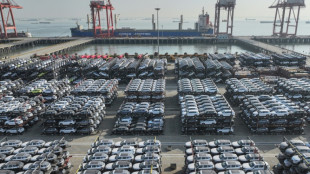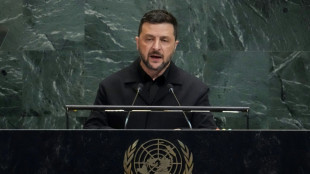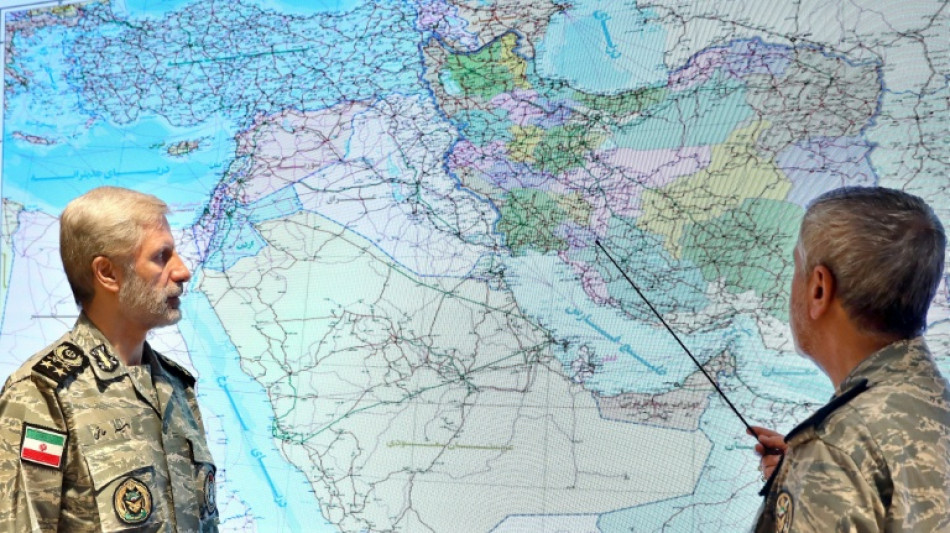
-
 France, US tell Iran still chance to avoid nuclear sanctions
France, US tell Iran still chance to avoid nuclear sanctions
-
Big news: Annual eating contest roars to life in Fat Bear Week

-
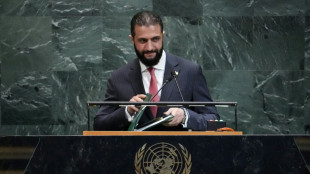 In UN debut, new Syria leader warns on Israel but backs dialogue
In UN debut, new Syria leader warns on Israel but backs dialogue
-
Malawi's ex-president Mutharika returns to power in crushing vote win

-
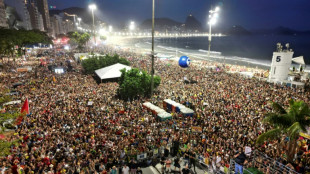 Under-fire Brazil senators scrap immunity bid
Under-fire Brazil senators scrap immunity bid
-
Morikawa calls on US Ryder Cup fans 'to go crazy'

-
 India see off Bangladesh to book Asia Cup final spot
India see off Bangladesh to book Asia Cup final spot
-
Rubio calls for Russia to stop the 'killing' in Ukraine
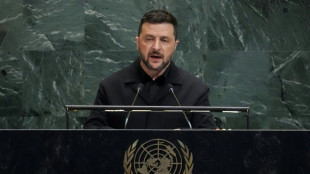
-
 Macron tells Iran president only hours remain to avert nuclear sanctions
Macron tells Iran president only hours remain to avert nuclear sanctions
-
UN humanitarian chief slams impunity in face of Gaza 'horror'
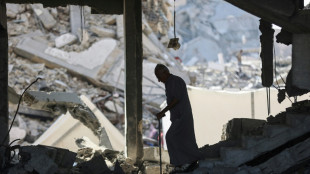
-
 Danish PM apologises to victims of Greenland forced contraception
Danish PM apologises to victims of Greenland forced contraception
-
Planetary health check warns risk of 'destabilising' Earth systems

-
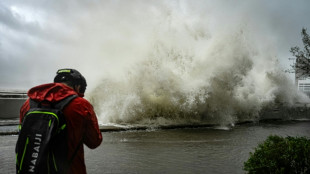 Typhoon Ragasa slams into south China after killing 14 in Taiwan
Typhoon Ragasa slams into south China after killing 14 in Taiwan
-
Monchi exit 'changes nothing' for Emery at Aston Villa

-
 Taiwan lake flood victims spend second night in shelters
Taiwan lake flood victims spend second night in shelters
-
Europe ready for McIlroy taunts from rowdy US Ryder Cup fans

-
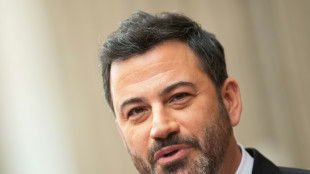 US comedian Kimmel calls Trump threats 'anti-American'
US comedian Kimmel calls Trump threats 'anti-American'
-
Australia win tense cycling mixed relay world title

-
 Stokes will be battle-ready for Ashes, says England chief
Stokes will be battle-ready for Ashes, says England chief
-
Iran will never seek nuclear weapons, president tells UN

-
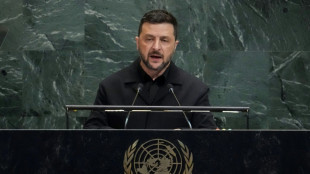 Zelensky says NATO membership not automatic protection, praises Trump after shift
Zelensky says NATO membership not automatic protection, praises Trump after shift
-
Becker regrets winning Wimbledon as a teenager

-
 'Mind-readers' Canada use headphones in Women's Rugby World Cup final prep
'Mind-readers' Canada use headphones in Women's Rugby World Cup final prep
-
Rose would welcome Trump on stage if Europe keeps Ryder Cup

-
 AI optimism cheers up markets following Fed rate warning
AI optimism cheers up markets following Fed rate warning
-
France doubles down on threat to build future fighter jet alone
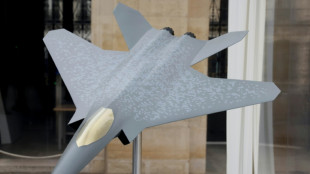
-
 Delay warning issued to fans ahead of Trump's Ryder Cup visit
Delay warning issued to fans ahead of Trump's Ryder Cup visit
-
EU chief backs calls to keep children off social media

-
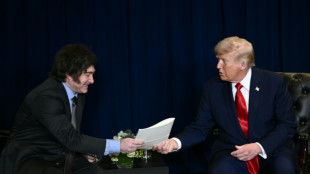 US Treasury says in talks to support Argentina's central bank
US Treasury says in talks to support Argentina's central bank
-
'Everything broken': Chinese residents in typhoon path assess damage
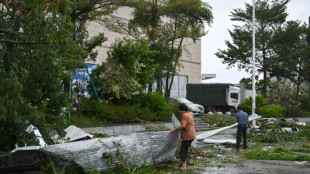
-
 Inside Barcelona's Camp Nou chaos: What is happening and why?
Inside Barcelona's Camp Nou chaos: What is happening and why?
-
UK police arrest man after European airports cyberattack
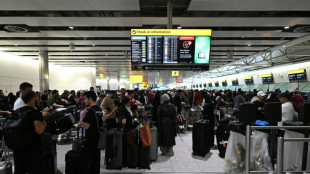
-
 Ballon d'Or disappointment will inspire Yamal: Barca coach Flick
Ballon d'Or disappointment will inspire Yamal: Barca coach Flick
-
French-German duo wins mega offshore wind energy project
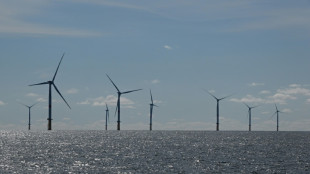
-
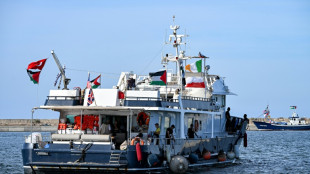 Italy deploys frigate after drone 'attack' on Gaza aid flotilla
Italy deploys frigate after drone 'attack' on Gaza aid flotilla
-
Typhoon Ragasa slams into south China after killing 17 in Taiwan
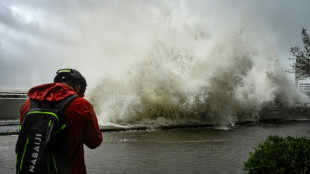
-
 NASA launches mission to study space weather
NASA launches mission to study space weather
-
Stocks torn between Fed rate warning, AI optimism

-
 Russia vows to press offensive, rejects idea Ukraine can retake land
Russia vows to press offensive, rejects idea Ukraine can retake land
-
French consumer group seeks Perrier sales ban

-
 Photographer Arthus-Bertrand rejects image of 'fractured France'
Photographer Arthus-Bertrand rejects image of 'fractured France'
-
Gaza civil defence says dozens killed in Israeli strikes
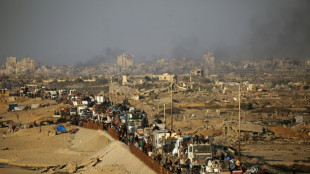
-
 Pakistan's Shaheen sends Asia Cup warning as third India clash looms
Pakistan's Shaheen sends Asia Cup warning as third India clash looms
-
Amazon to shut checkout-free UK grocery shops

-
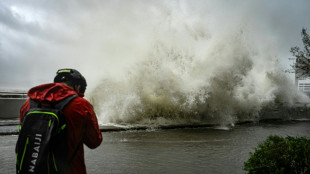 Typhoon Ragasa hits south China after killing 15 in Taiwan
Typhoon Ragasa hits south China after killing 15 in Taiwan
-
Russia vows to press on in Ukraine, rejects Trump jibe
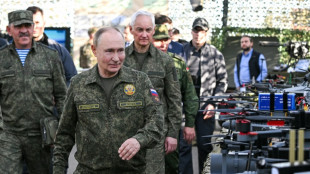
-
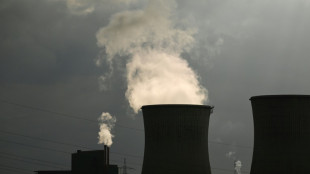 Germany's Merz rejects claims he is slowing green shift
Germany's Merz rejects claims he is slowing green shift
-
Sinner says 'changing a lot' after US Open loss to Alcaraz

-
 Russia-linked disinfo campaign targets Moldovan election
Russia-linked disinfo campaign targets Moldovan election
-
Danish PM to apologise to victims of Greenland forced contraception


Military bases or vital waterway: Iran weighs response to US strikes
Iran has vowed to retaliate for US air strikes on its nuclear facilities, and has two main options: attacking American forces in the region, and closing the strategic Strait of Hormuz.
An advisor to Iran's supreme leader issued a warning on Sunday, saying any US base in the region that takes part in attacks was a "legitimate target".
Disrupting traffic through the narrow Strait of Hormuz, a vital route for oil and gas, would send energy prices soaring in a global inflationary shock.
Closing the waterway would be "extremely dangerous," Kaja Kallas, the European Union's top diplomat, said on Monday.
AFP looks at the two scenarios and their possible implications.
- Strait of Hormuz -
The narrow, U-shaped seaway snaking between Iran and the Arabian Peninsula is the gateway for Gulf energy shipments to global markets, carrying one-fifth of the world's oil and liquefied natural gas exports.
Closing the 50-kilometre (30-mile) wide channel could spike oil to $120 a barrel, according to Deutsche Bank research, raising prices of transport, food and utilities around the world.
"It's in the best interest of all Middle Eastern countries to keep the Strait of Hormuz open and prevent any supply disruption," Rystad Energy senior analyst Lu Ming Pang wrote last week.
Currently, traders do not appear too concerned. Brent crude was trading at $76 on Monday, little changed from Friday's close.
"Looking at the oil price this morning, it is clear that the oil market doesn't assign a very high probability of (a closure) happening," said Bjarne Schieldrop, chief commodities analyst at SEB bank.
The big question is whether Iran is prepared to detonate this economic hand-grenade. Despite threats in the past, including in 2011 as oil sanctions loomed, it has not pulled the pin.
According to a senior European official, the Iranians do not have the means to block the strait "long-term", but they could hamper shipping.
But "it would be a form of suicide to do that," the official said.
"The effect on Israel would be close to zero, the effect on themselves immense, as well as on the United States, Europe and China."
Iranian forces have nearly 200 fast patrol boats that can fire anti-ship missiles or torpedoes, plus mine-laying vessels, according to the International Institute for Strategic Studies.
But the US Fifth Fleet, a major naval force, is stationed across the Gulf in Bahrain, and Iran remains under daily fire from Israeli warplanes and drones.
Iran's own energy exports, in spite of sanctions, remain an important source of income for the world's ninth-biggest oil-producing country.
- US bases -
With United States military bases spread around the Gulf countries to Iran's west, there is no shortage of potential targets.
Kuwait, in a legacy of the 1990 Gulf war, houses about 13,500 US forces, while the biggest US base in the region is Al Udeid in Qatar.
The US Fifth Fleet, covering the Gulf, Red Sea and parts of the Indian Ocean, is based in Bahrain, and about 3,500 US personnel are stationed at Al Dhafra Air Base in the United Arab Emirates.
Increased US involvement in the Iran-Israel war risks attacks "on US interests, US bases and such across the region", said Renad Mansour, senior research fellow at Chatham House.
"The US attack on Iran has now meant that this war is between Israel, the United States and Iran, which means that across the region, Iran may seek to target the US," he added.
However, this option is also fraught for Iran as it risks isolating itself from the powerful Gulf monarchies that enjoy good relations with Washington.
"Tehran is unlikely to strike Gulf Arab states," said Andreas Krieg, a senior lecturer at King's College London.
"Even as it sees the UAE and Saudi Arabia as quiet enablers of the US-Israeli axis, Iran understands that any attack on their soil would likely unify them against it and open the door for greater American military presence.
"Instead, Iran may issue veiled warnings to these states, use regional proxies to pressure them, or engage in cyber or intelligence disruptions targeting their interests -- maintaining plausible deniability while raising the cost of involvement."
C.Stoecklin--VB


